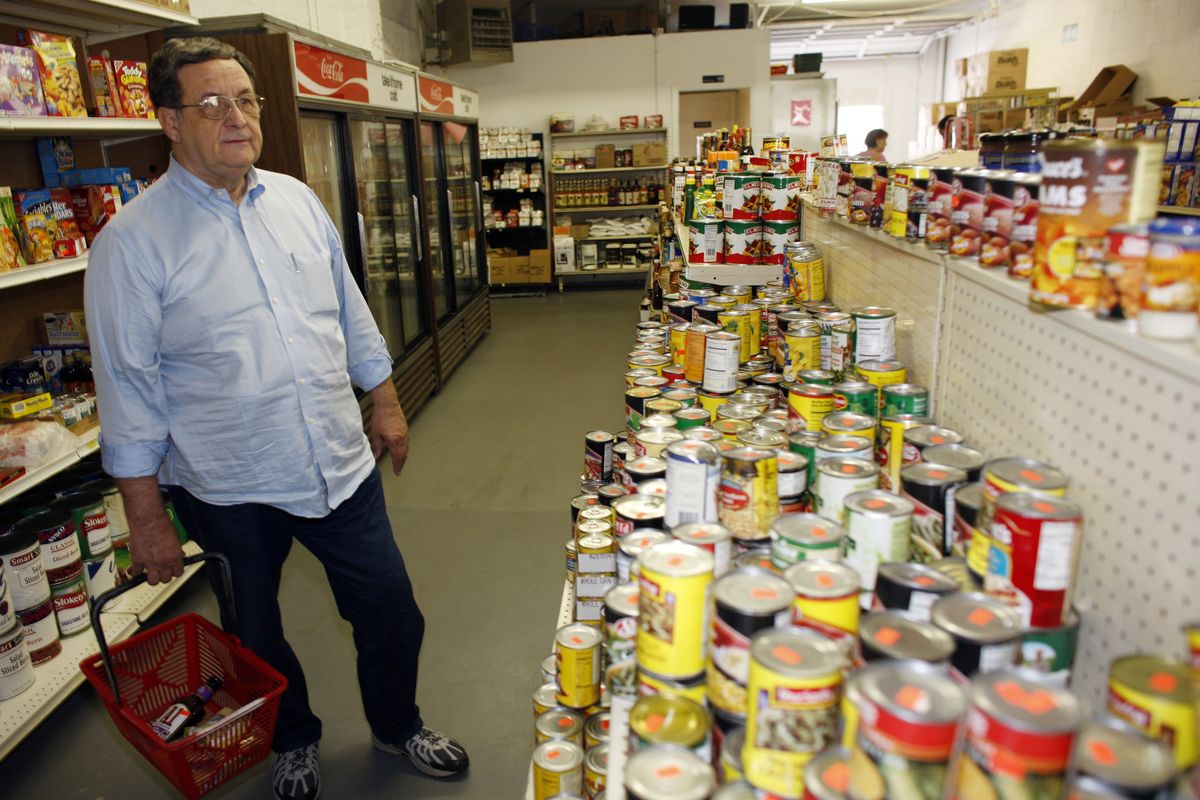Sales surge at salvage stores
Americans find relief for food budget at grocers who sell imperfect, outdated goods

ARVADA, Colo. – You won’t find a perfectly ripe tomato at Martin Palumbo’s grocery store. You won’t even find a perfect can of tomatoes.
What you will find are lots of dented cans of tomatoes, and a growing number of customers hungry for these and other staples sold at deep discounts, such as cereal boxes crushed by forklifts and bottles of salad dressing past their “sell-by” dates.
Sales at Palumbo’s Friday Store in suburban Denver have surged in recent months, mirroring the trend at so-called salvage grocers nationwide, as the recession makes frugal living appealing to more Americans.
Groceries eat up 12.5 percent of American families’ budgets, on average, according to the Bureau of Labor Statistics. So while food prices generally have fallen from last summer’s record highs, many people – not just the poor – have reasons to bargain-shop for groceries.
To capture a piece of this market, big-box retailers such as Target Corp. and Wal-Mart Stores Inc. are selling more food these days. They are snatching business from traditional grocers, who are trying to hold on to customers by packing their shelves with more no-frills products.
At the very end of the food retailing chain are the salvage grocers, whose prices are often more than 50 percent less than traditional grocers’.
People who frequent salvage stores do the bulk of their food shopping at traditional grocers, where dairy and produce are more plentiful and there is lots of variety for everything else. A trip to the salvage grocer, they say, is more like a treasure hunt – what’s available one week may not be the next time around.
That’s certainly the case at Palumbo’s store, which is more accurately a warehouse the size of two large garages with cement floors and bare white walls.
Amid the rows of crumpled cereal boxes and past-prime meat, customers may stumble upon everything from gourmet cheese to rattlesnake sausage. It all depends on what Palumbo’s broker ships him – some of which must be thrown out because it’s stale or the packaging is opened.
Stacey McQuown, 41, a bookkeeper for a wholesale florist shop, estimated that she saves about $40 a week by shopping at the Friday Store.
Demand for salvage groceries has grown so much in the past year that prices – sometimes less than half traditional retail prices – have begun to creep higher, store owners say.
There are hundreds of salvage grocers operating in more than three dozen states. Most salvage grocers rely on word-of-mouth advertising.
“Doesn’t everybody want to tell people about a good deal?” said Gary Gluckman, who has run the Grocery Clearance Center in Dallas for 16 years.
Sales to salvage-food wholesalers represent a tiny fraction of the business of major food manufacturers, such as General Mills, Kraft Food Co. and Heinz. For example, Kraft, the world’s second-largest food company, sells less than 1 percent of its products through salvage stores, according to spokeswoman Bridge MacConnell.
The discounts can be significant. Buffalo ribs that can be as expensive as $9 per pound at a traditional supermarket, sell for $2.99 a pound at the Friday Store. Deals like these come around when wholesalers order more than they can sell through traditional channels. But the food is always edible, Palumbo said.
Barbecue sauces, beef jerky, fruit drinks and chips can be purchased for 75 percent less than at mainstream stores.
As salvage stores seek more product to meet rising demand, some items have become more expensive, said Evangeline Anderson, who opened Anderson’s Country Market last year. Palumbo said he has had to raise prices, but tries to keep them lower than bigger grocery stores by monitoring their weekly newspaper specials.
Salvage grocers are regulated much the same as traditional grocers: Inspectors check that the facilities and the products on the shelves are clean and that cans are not severely dented or punctured.